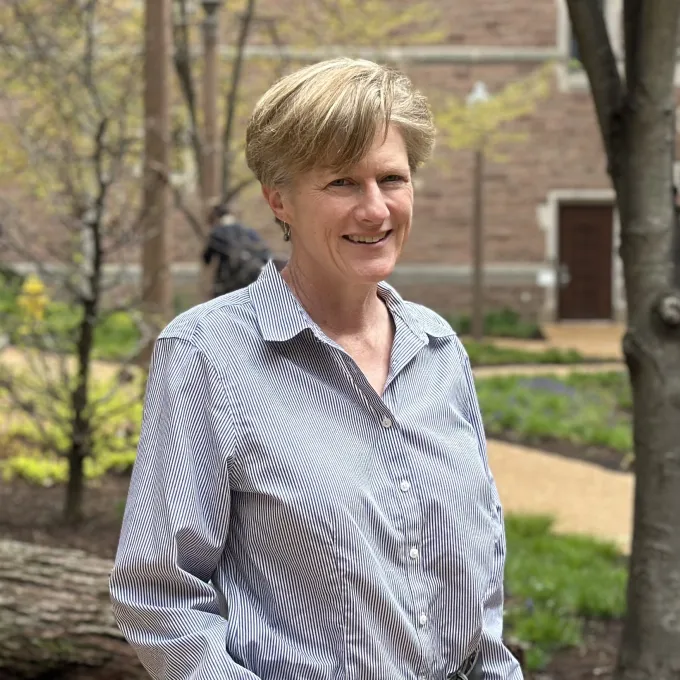https://psych.wustl.edu/xml/faculty_staff/11822/rss.xml
View All People
Professor McDermott investigates human memory encoding and retrieval and how they interact. Her research uses both psychological and functional neuroimaging (fMRI) techniques.
McDermott investigates human memory encoding and retrieval and how they interact. Her research uses both psychological and functional neuroimaging (fMRI) techniques. Ongoing projects include explorations of how memory is used to think about upcoming events (i.e., to simulate future episodes); why attempting to retrieve recently-experienced information enables the learner to gain more from a subsequent learning episode; and the contribution of regions within parietal cortex to encoding and retrieval.
Selected Publications
- Shaffer, R.A. & McDermott, K.B. (2022). The dual-process perspective and the benefits of retrieval practice in younger and older adults, Memory, 30, 554-572.
- McDermott, K.B. (2021) Practicing retrieval facilitates learning. Annual Review of Psychology, 72, 609–633.
- Zerr, C.L., Spaventa, T., & McDermott, K.B. (2021). Are efficient learners of verbal stimuli also efficient and precise learners of visuospatial stimuli? Memory, 29, 675-692.
- Gilmore, A.W., Nelson, S.M., & McDermott, K.B. (2021). Precision functional mapping of human memory systems. Current Opinion in Behavioral Sciences, 40, 52-57.
- McDermott, K.B. & Zerr, C.L. (2019). Individual differences in learning efficiency. Current Directions in Psychological Science.
- Zerr, C.L., Berg, J.J., Nelson, S.M., Fishell, A.K., Savalia, N.K., & McDermott, K.B. (2018). Learning efficiency: Identifying individual differences in learning rate and retention in healthy adults. Psychological Science, 29, 1436-1450.
